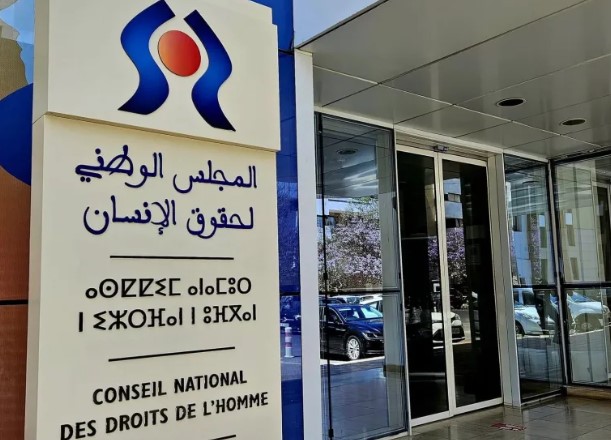The National Human Rights Council (CNDH) unveiled its annual report for 2023 on Tuesday in Rabat, focusing on the theme “Establishing a National System for the Protection of Economic and Social Rights.” Presented by CNDH President Amina Bouayach during a press conference, the report includes a total of 332 thematic and general recommendations, with 122 issued by the three national mechanisms and 41 structural recommendations directed at public authorities. These recommendations address the Kingdom’s conventional practices, its interaction with the international human rights system, the legal and institutional framework, and the scope of public policies, programs, and practices.
The Council’s recommendations emphasize accelerating the adoption of fundamental human rights laws, completing all components of social protection, and expanding their application to establish a national system for protecting economic and social rights. This includes ensuring minimum social security standards such as old-age pensions, unemployment, disability benefits, and compensation for work accidents.
The report also noted an increase in the number of complaints and requests, with the CNDH, its national mechanisms, and regional commissions receiving 3,318 complaints, including 280 from women or girls who were victims of violence and 276 related to migrant rights. It was observed that more individuals and groups are turning to regional commissions as local recourse mechanisms.
The Council highlighted an increase in complaints related to economic and social rights, indicating the difficulties individuals face in accessing basic services. There was also a rise in complaints about the right to a clean and sustainable environment and the right to water, attributed to the unprecedented water stress the country has experienced since 2022, continuing into 2023.
Furthermore, the report showed that complaints now also address issues related to privacy, reflecting CNDH’s reputation as a non-judicial recourse mechanism. The creation of non-governmental organizations continues to be dynamic, with an estimated 266,610 NGOs operating across various regions of the Kingdom by the end of 2023.
The Council recommended launching consultations among various civil and institutional actors to revise the law on associations and regulate associative life, considering the evolution of rights related to the freedom of association.
The report also emphasized the need to support the CNDH in its interventions related to human trafficking cases, advocating for the development of a guide to strengthen the capabilities of its national and regional staff and adopting a unified methodology for handling such cases. This guide would also facilitate early identification and follow-up of potential victims, with 110 cases brought before the judiciary in 2023.
Additionally, the report demonstrated the Council’s capacity to engage in public debate on societal issues related to rights and freedoms, both virtually and in reality, reflecting a shift in its approach to urgent matters. The CNDH also continued its efforts to ensure the implementation of the remaining recommendations from the Equity and Reconciliation Commission (IER), particularly those related to memory preservation, collective and individual rehabilitation, and decisions regarding cases of enforced disappearance.
The Council mentioned the report of the National Mechanism for the Prevention of Torture, which conducted 55 visits to places of deprivation of liberty, including 15 visits to penitentiary establishments and 26 visits to police custody facilities. These included 8 visits to National Security facilities, 19 to Royal Gendarmerie locations, 7 to courts, 5 to child protection centers, and 1 to a psychiatric hospital. These visits resulted in a report containing observations and recommendations.
The CNDH also highlighted the National Mechanism for handling complaints of children’s rights violations, which received a total of 83 complaints in 2023, and the National Mechanism for the protection of the rights of persons with disabilities, which received 32 complaints and requests during the same year.
The report also recalled that three reports on the human rights situation in Morocco were adopted by UN mechanisms in 2023. These reports covered the implementation of the International Convention on the Elimination of All Forms of Racial Discrimination, the International Convention on the Protection of the Rights of All Migrant Workers and Members of Their Families, and the fourth cycle of the Universal Periodic Review, with 306 recommendations issued.
The Council welcomed the Moroccan government’s positive interaction with 232 approved recommendations, including those aimed at strengthening the exercise of freedom of expression, opinion, association, and assembly. The Council also encouraged the government to reconsider its stance on partially or entirely rejected recommendations, such as the abolition of the death penalty and the criminalization of marital rape.
The report emphasized that the CNDH has solidified its leadership within international and regional networks of national human rights institutions. For example, it serves as the vice-president of the Global Alliance of National Human Rights Institutions and leads working groups for the Global Alliance and the African Network.
The CNDH also strengthened its relationship with the African Union’s human rights system, organizing a significant Human Rights Conference and the African Forum on Transitional Justice for the first time since Morocco rejoined the African Union.
The report concluded that consolidating the foundations of the national system for the protection of economic and social rights requires accelerating education reform to ensure quality education for all and enhancing the national human capital.
It also advocated for continuing tax reform and implementing all provisions of the framework law on tax reform as essential elements for financing economic and social rights and strengthening territorial justice.
